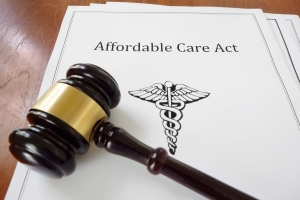Benefits Buzz
Health Savings Accounts (HSAs) allow eligible individuals to put money aside tax-free to pay for out-of-pocket medical expenses, but HSAs work differently than other tax-advantaged accounts. Here are 10 helpful tips and reminders as the year comes to an end.
Time is running out to spend your 2018 FSA funds. In most cases, unless your plan has carryover or the Grace Period, you’ve only got until 12/31 to spend any remaining balance. By the time the ball drops on New Year’s Eve, any money left in your account will be forfeited.
Last Friday, a federal judge in Texas ruled the Affordable Care Act (a.k.a. Obamacare) unconstitutional.
The judge’s decision came in response to a lawsuit filed by 20 Republican state attorneys general earlier this year. The lawsuit was filed after the Tax Cuts and Jobs Act zeroed out the Individual Mandate penalty. The lawsuit claimed the Individual Mandate was so essential to Obamacare, and without it, all of Obamacare must go. The judge agreed.
Illinois state legislators passed a law last month which makes several changes to short-term medical (STM) plans. The most significant change limits the maximum duration of coverage to periods that are less than 181 days (i.e. 180 days). This change applies as of November 27, 2018, which is the date the law was enacted. The immediate effective date did not provide a window of time for insurance carriers to adjust their STM plans to the shorter durations of coverage.
Many employers offer a cash payment to employees who waive health insurance coverage. These cash payments are always taxable to employees who waive health insurance coverage, but did you know employees who elect the health insurance coverage may be subject to paying taxes on the cash payment that they didn’t receive?
Wait! What?
This fourth quarter has been like no other. Finally, health insurance renewals aren’t coming in with double digit rate increases like they have in recent years. For once, you don’t have to tell your clients that their premiums will be going up by 20%-30% next year. It’s a sigh of relief, but that doesn’t mean you should just coast through the fourth quarter. We’ve got 3 tips to make this year one of your best years yet.







